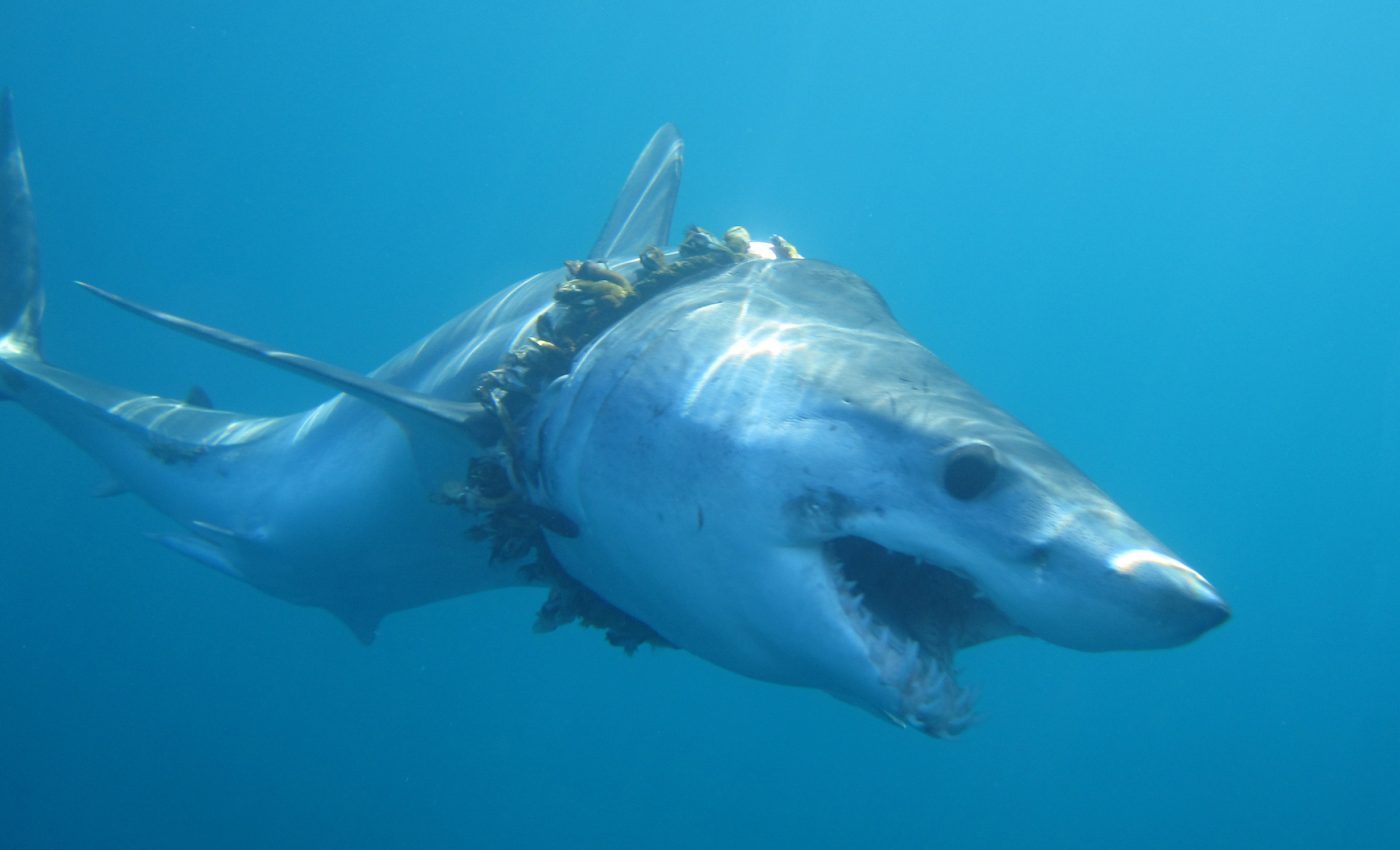
Hundreds of sharks and rays have gotten tangled in ocean plastic
Scientists at the University of Exeter have determined that hundreds of sharks and rays have been tangled in plastic marine waste. The team reviewed published studies and social media posts and found plastic entanglement reports involving more than a thousand individuals.
While this may pose a “far lesser threat” to sharks and rays than commercial fishing, the suffering involved is still a major concern.
“One example in the study is a shortfin mako shark with fishing rope wrapped tightly around it,” said study co-author Kristian Parton. “The shark had clearly continued growing after becoming entangled, so the rope – which was covered in barnacles – had dug into its skin and damaged its spine.”
“Although we don’t think entanglement is a major threat to the future of sharks and rays, it’s important to understand the range of threats facing these species, which are among the most threatened in the oceans.
“Additionally, there’s a real animal welfare issue because entanglements can cause pain, suffering and even death.”
The review of published studies found reports of 557 sharks and rays entangled in plastic, including 34 species in the Atlantic, Pacific, and Indian Oceans.
“Due to the threats of direct overfishing of sharks and rays, and ‘bycatch’ (accidental catching while fishing for other species), the issue of entanglement has perhaps gone a little under the radar,” said study co-author Professor Brendan Godley.
“We set out to remedy this. Our study was the first to use Twitter to gather such data, and our results from the social media site revealed entanglements of species – and in places – not recorded in the academic papers.”
Twitter contained 74 entanglement reports involving 559 individual sharks and rays of 26 different species, such as whale sharks, great whites, tiger sharks, and basking sharks.
Overall, the most common entanglement objects were “ghost” fishing gear, including nets, lines, and other equipment that has been discarded or lost in the ocean.
According to the experts, their estimate does not even represent the true number of incidents given the fact that few plastic entanglement studies have been focused on sharks and rays.
The study is published in the journal Endangered Species Research.
–
By Chrissy Sexton, Earth.com Staff Writer
Image Credit: Daniel Cartamil













